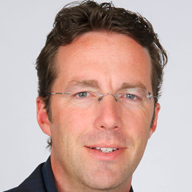Luck Surface Area

Talking with a group of web development professionals the other day about marketing, one mentioned that he had heard a new term, Luck Surface Area. He didn't know much about it, but in the random and interconnected way of thoughts, it had sprung to mind. At the time we were discussing the many ways that, as a professional, you can put yourself out there and become part of a potential client's conversations. Efforts made to increase visibility also increase your Luck Surface Area, or the likelihood that through serendipity, your professional life will somehow expand. You might gain a new client or alter your career trajectory profitably.
The term Luck Surface Area was coined by Jason Roberts during a podcast. He blogs about it on Codus Operandi. The more I looked into others’ delineations of the concept, the more specific and confining it seemed. I realized that I had liked it better as a collection of fleeting thoughts of my own - ricocheting in variations off the stimulating thoughts of my friend.
In college, a professor introduced me to the idea of non-false errors in reading. The concept was that we sometimes read or listen incorrectly. We mis-hear. We mis-read. But we do so in a way that results in some sort of an intellectual advancement for ourselves or for others. For you, perhaps Billy Budd symbolized something totally different than Herman Melville intended. If your “error” is useful to you, then you retain your misunderstanding as an additional layer of understanding. Though you may go back and work to learn what the author intended, you also get to keep your “mistake”. In adding my own creative interpretation, my investment is compounded. Beethoven was inspired by Diabelli’s simple waltz, to write 33 brilliant variations. This approach to reading, listening and thinking has benefited me by allowing me to view others’ ideas as springboards for my own - instead of as destinations in and of themselves.
The phrase Luck Surface Area enkindled my mind. I tried to imagine what the term must mean. Divorced from context, such a turn of phrase unleashes new and original thoughts. Some, when contemplating this turn of phrase, have drawn connections to Seneca’s well-worn aphorism, "Luck is what happens when preparation meets opportunity." But this is markedly different from what Mr. Roberts intended and expresses in his blog post. Preparing for opportunity is a different concept than broadcasting your passion into the world for others to notice.
In coming blog posts I hope to consider a number of different interpretations for Luck Surface Area as I think many of them bear interestingly on the act of running a business. Looking through the Luck Surface Area prism, I see not only marketing implications but also implications for how one goes about the act of design, how one writes code, how one schedules and conducts meetings, how one approaches conversation, how one manages a team, and how one chooses areas of expertise to cultivate and share.
